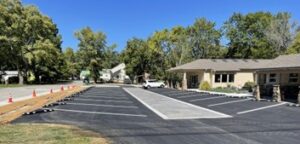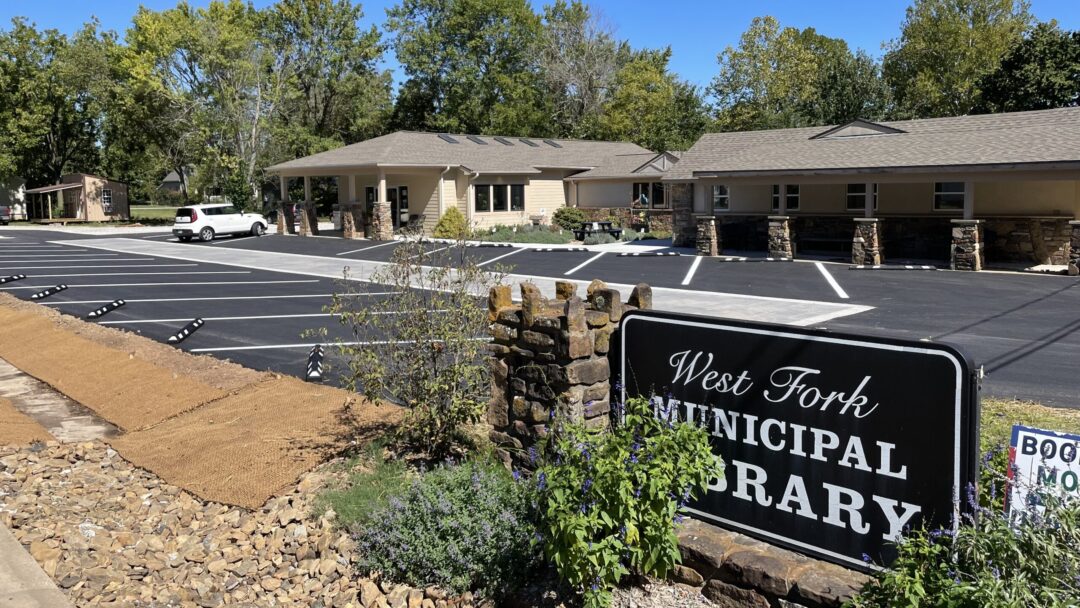Thanks to funding from the “Smart Growth for Source Water Protection” grant program from the Arkansas Department of Agriculture’s Natural Resources Division and the US Environmental Protection Agency, the Alliance is set to install three Low Impact Development (LID) projects across Northwest Arkansas. The first project was completed in West Fork, Arkansas, and two additional projects are set to be installed in Elkins and Fayetteville, Arkansas.
West Fork Smart Growth for Source Water Protection
In 2023, a LID parking lot was installed at the West Fork Public Library. Pervious pavers with underground stormwater storage and a bioswale (native plants coming soon!) were installed to help mitigate previous flooding issues, which were a nuisance for library-goers. The features will also help reduce the transport of sediment and vehicle pollutants. This project is near the West Fork of the White River, a significant tributary to Beaver Lake, the drinking water source for 1 in 5 Arkansans.

Elkins Smart Growth for Source Water Protection
The Alliance and City of Elkins are working together to make improvements to Bunch Park with LID design for improving stormwater runoff, increasing native plants along the riparian of the East Fork – White River, increasing educational opportunities for park visitors and nearby schools, as well as developing a plan for education to residents and visitors. This project is set to be installed in 2024. Plans include a prairie restoration, pathways for residents to enjoy passive recreation such as birding and wildlife viewing, opportunities to learn about native plants, and educational signage. The site is within walking distance from Elkins schools and could also serve as a training ground for landowners interested in landscape conversions.
The grant program and partnership will advance components of the Beaver Lake Watershed Protection Strategy by curbing sediment, which is the number one threat to Beaver Lake. Soil erosion from developed areas and increased drainage volume in urban and suburban streams have contributed large amounts of sediments to enter streams. These trends highlight the importance of normalizing LID practices throughout the watershed.
Fayetteville Smart Growth for Source Water Protection
More info coming soon!


Recent Comments